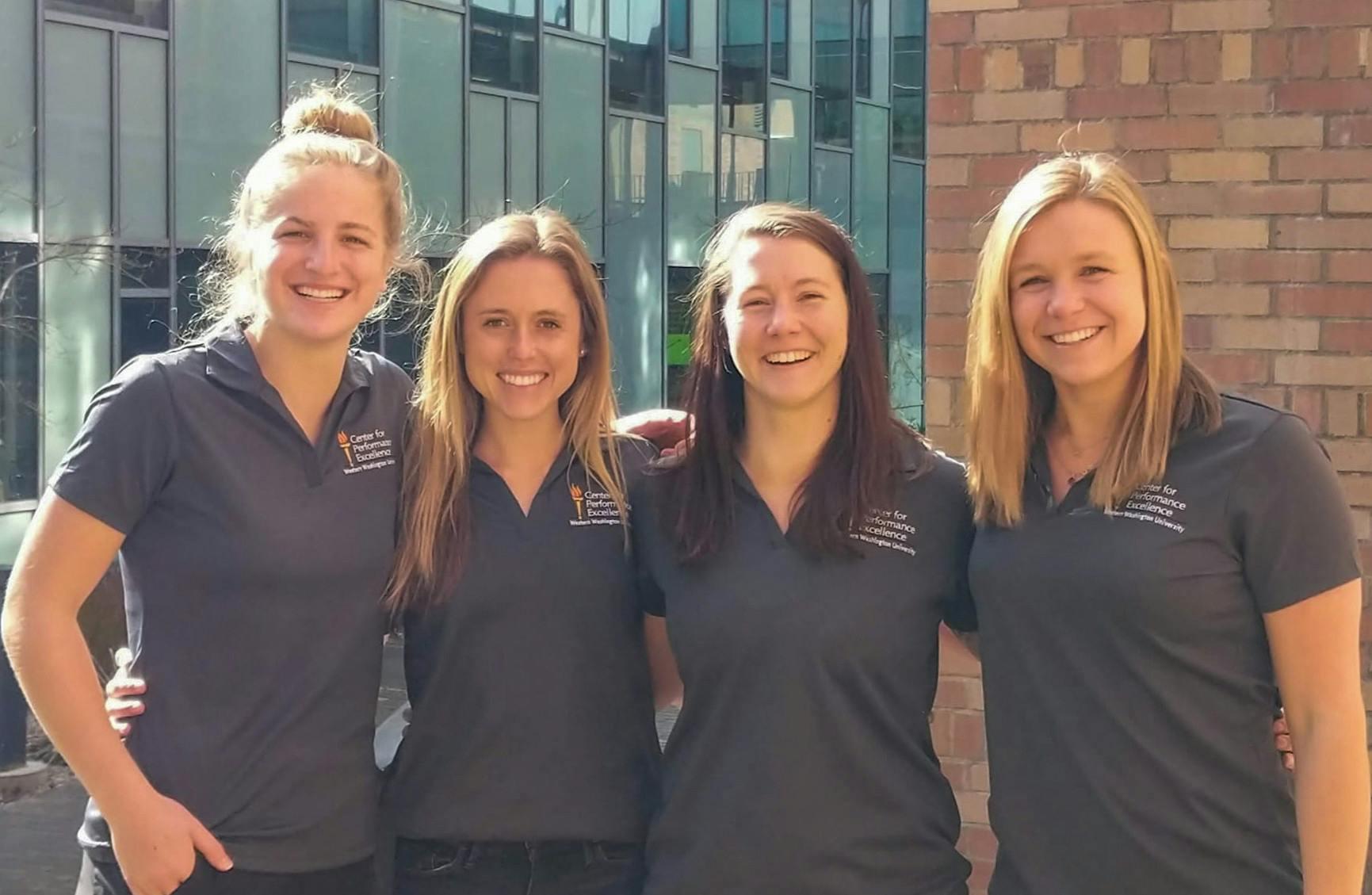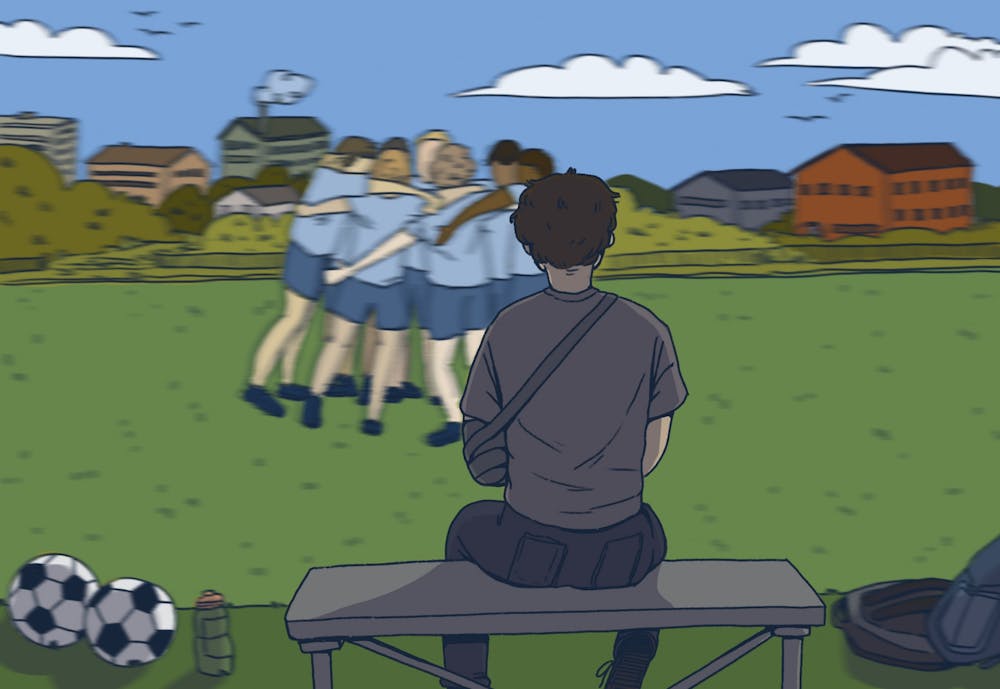College athletes have a lot on their plates, balancing college courses with practices and games. When injuries are added to the mix, they have to dedicate time and energy toward recovery.
Dr. Jennifer Gildner, a sport psychologist and counselor for Western Washington University’s athletic department, said injuries can lead to mental health struggles. These struggles can include feelings of isolation from the team, mood issues associated with not being able to compete or be active and guilt over what led to the injury.
For athletes who have just suffered an injury, managing early stresses about what happened can be helpful in the recovery process.
“They feel an intense amount of stress when they get injured,” said Dr. Jessyca Arthur-Cameselle, professor of sports and exercise science at Western. “Because they start thinking, ‘How long am I going to be out? Is this actually going to recover? Will I ever get back to where I was before as a player?’”
Stress can manifest in the body as muscle tightness, which can interfere with injury rehabilitation, and even result in re-injury.
“Studies are consistently showing that people who are afraid to get hurt again are the group that gets hurt again,” Arthur-Cameselle said.
Arthur-Cameselle emphasizes this phenomenon in kinesiology classes she teaches and discusses trying to reframe injuries as downtime from a sport — better yet, reframing the situation as something to be grateful for.
“It's a hard sell for athletes,” she said.
When an injury is season or career-ending, athletes may go through a grieving process similar to losing a loved one.
“It's like losing a part of them,” Arthur-Cameselle said.

From left to right: sport and exercise psychology graduate students Claire Henninger, Peyton Bilo, Becca Pierce and Lindsay Ahmann smile outside of Sam Carver Academic Facility at Western Washington University in Bellingham. Western’s Center for Performance Excellence (CPE) provides a space for university and recreational athletes to work on sports performance with graduate student mental strength coaches. // Courtesy of the Center for Performance Excellence
For the last two volleyball seasons, senior libero Kasey Woodruff has been managing a labrum tear in her hip that she sustained over time. There have been days when she goes to physical therapy in the morning, then pre-practice treatment, weight training, practice and post-practice treatment. Although she has been able to keep playing with her injury, the amount of time and effort spent rehabbing her hip has been draining.
For Woodruff, managing her chronic injury has been more mentally exhausting than it has been physically exhausting.
“I kind of had to take a step back and be like, ‘OK, I don't need treatment every day,’” Woodruff said. “‘I am getting depressed. I'm in a gym for six hours a day. I can't be here.’”
Athletes facing career-ending injuries may go through an identity crisis. In these cases, Arthur-Cameselle said finding other fulfilling activities that use their athletic identity in another area of life, like coaching or finding a competitive hobby, can help.
Gildner said talking with athletes who are moving away from the sport, whether it also be due to injury as well or for another reason, can help as well. This decreases injured athletes’ feeling of being alone with their loss.
Similar to Woodruff, Western junior Brandon Locke, a goalie for the men's soccer team, has been dealing with injuries for the last few seasons. Before the 2021 fall season, Locke dove for a ball and felt something pop in his shoulder. He tore his labrum and strained his rotator cuff.
Even after months of intensive rehab, the injury lingers. Locke said he still feels a bit of a mental block when it comes to diving for stops because he doesn’t want to re-injure his shoulder.
“In a game, you’re throwing your body anywhere,” Locke said, “And I think that is what will get me over that hump.”
Locke is hoping to regain confidence in his shoulder before his senior season next year.
Gildner said focusing on what athletes can control helps them manage the mental burden of being injured. Strengthening non-injured parts of the body and supporting competing teammates may help them feel more involved in their sport. Joining a sports injury support group and working on the mental aspects of their game can also aid recovery.
For athletes struggling with fears about re-injury or who want to improve their mental strength, Western’s Center for Performance Excellence (CPE) offers mental strength coaching. Co-directed by Arthur-Cameselle and Dr. Linda Keeler, a certified mental performance consultant and Western kinesiology professor, the CPE has graduate student mental health coaches ready to help.
All the mental strength coaches are in the master of sport psychology program, and their one-hour sessions are free for varsity and club sports athletes. Recreation student-athletes are welcome too, with suggested prices for group and individual sessions.
Ravi Regan-Hughes (he/him) is the campus editor this quarter. He is a news and editorial journalism major, an anthropology minor and was previously a sports reporter for The Front. Ravi enjoys spending his free time watching basketball, taking photos and being outside.
You can reach him at ravi.thefront@gmail.com.






